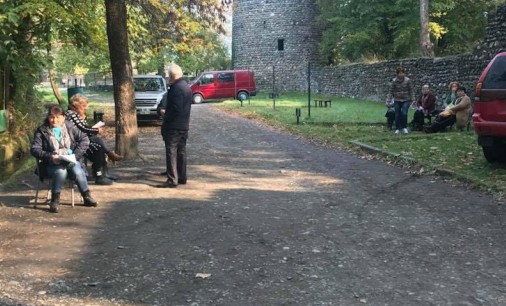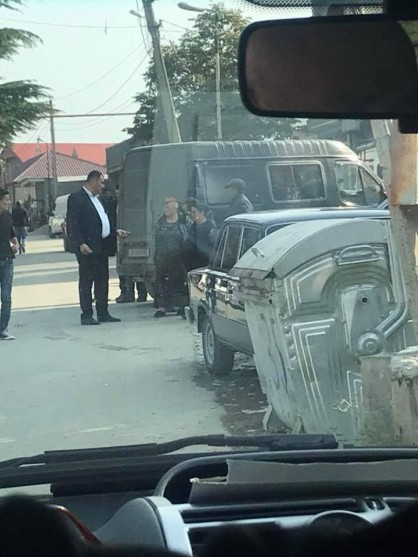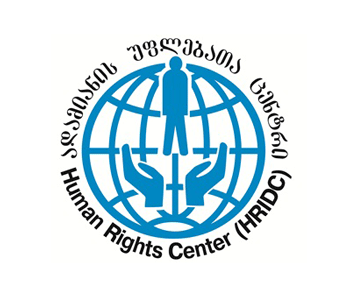Observers of Human Rights Center monitored the ongoing local self-government elections in two regions of Georgia: Kakheti region - in the villages compactly inhabited with ethnic minorities in Sagarejo, Telavi and Akhmeta municipalities; and in Shida Kartli region – conflict-affected villages in Gori municipality.
On October 21, the observers of Human Rights Center registered 3 complaints and several remarks notes into the log-book. The complaints referred to the regulation of the flow of voters, violated confidentiality of the ballot process, restriction of the right to vote.
After the polling process was over, the HRC monitors observe the process of opening the ballot boxes and counting of the votes. The monitors stayed in the precincts till the final protocols were filled in. The counting process was carried out without violations.
Human Rights Center lodged 2 complaints to the Telavi and Sagarejo DECs. In case of necessity, Human Rights Center will appeal the court.
According to the evaluation of Human Rights Center, the polling process was carried out mainly in peaceful and fair environment in the polling stations where our monitors observed the process. The observed violations could not influence the final results of the elections.
Particularly noteworthy is the peaceful and fair election process in the villages of Pankisi, where the situation was calm in the vicinities of the precincts too. The election process was carried out in peaceful environment and without incidents in the ABL villages of Gori municipality (Tirdznisi, Tkviavi, Nikozi, Pkhvenisi, etc).
The problems were mostly observed in the villages compactly inhabited by Azerbaijani population in Sagarejo and Telavi municipalities. There, on the one hand incompetence of the commission members and on the other hand low public awareness and lack of knowledge of the election legislation by the voters caused conflicts, tensions and in some precincts we observed violations.
Excessive activity and attempt to control the voters by the coordinators and agitators of political parties have become an alarming tendency. We can say that in Georgia we have a new profession – “Counter of the voters” the people who are “trained” in the offices of the political parties in between the elections and during each election they are deployed in the precincts to control the turn out of the voters and count their number.

Photo: Napareuli village, precinct # 50 of Telavi DEC # 17. “Counters of the voters” are waiting for the voters before the polling station opens
Although the election code does not prohibit presence of the coordinators nearby the polling stations, Human Rights Center will single out the presence of the coordinators of political parties, particularly of the ruling party Georgian Dream, in the vicinities of the polling stations. They record the voters who come to vote, speak with them and sometimes even carry out agitation. Similar facts directly or indirectly hinder the demonstration of free will of voters in the election process.
This systemic problem was particularly alarming in the Karajala village of Telavi municipality. Polling stations # 37, 38, 39 and 54 of Telavi DEC # 17 are located next to each other in the center of Karajala village. For that reason, particularly large amount of voters were gathered in the area. The local election headquarter of the Georgian Dream is also located nearby. Supporters of the ruling party are mobilized in front of their local office. They actively contacted the voters before they entered the polling stations.

Photo: Karajala village majoritarian candidate Zurab Musaev is speaking with the voters, who had arrived at the polling station in the village center.
Majoritarian candidate Zurab Musaev with election number 41 is also on the place together with his supporters and he is giving out instructions to the voters in front of the precincts. Allegedly he is conducting active agitation in favor of his candidature. By midday food was brought to them by mini-bus, so that they did not have to go away and be on the spot to get all information about the turn-out of the voters in all four precincts around the Georgian Dream’s local office.
Opposition political parties also have coordinators and agitators mobilized in front of the polling stations. As the situation shows, these people are attracted and/or hired not because of the rating of the political parties but it depends on the financial resources of the political subjects. Consequently, in front of the polling stations, you can meet the agitators of those parties, who has the most money. As a rule, it is the ruling party (currently Georgian Dream, before 2012 it was United National Movement and before 2004 – it was Citizens’ Union), who gets financial resources from business companies.
The election history of Georgia shows that business refrains from funding the opposition parties because they do not want to face problems with the authority. Unequal distribution of financial resources in the pre-election period, finally reduces the chance of the opposition parties to win the ballot.
Like 2013 Presidential, 2014 local and 2016 parliamentary elections, HRC monitors observed fewer ballot papers in many polling stations than the number of voters registered in the respective polling stations. Although, all voters never go to the elections, it is important to implement the law requirement and avoid all risks which may the voters encounter in the voting process.
Neutrality of the PEC members shall be evaluated negatively, particularly in the villages compactly inhabited with ethnic minorities, where commission members (particularly the chairpersons) often are supporters of the ruling party and due that partiality they violate the law or keep their eyes blind on the violations by voters.
Example: Principle of confidentiality was violated in the Precinct # 38 (Duzagrama village) in Sagarejo DEC # 11. Several voters marked election number 41 outside the cabin and the commission members did not react. Another voter in the same precinct asked the commission member to teach how to mark the desired election subject. HRC observer lodged a complaint about these violations. Commission members denied her to register the complaint. After a resistance, the PEC registered the complaint.
Besides partiality, low qualification of the election administration remains to be the problem. Majority of the violations made by the PEC members are caused by their low qualification and poor knowledge of the election law. These problems are mostly observed in the villages of ethnic minorities, where incompetence of the PEC members often cause tension and sometimes – conflicts.
Human Rights Center observed the local elections with 25 monitors. Journalists of the online newspaper humanrights.ge and video-portal Hridc.TV also observed and covered the ongoing local elections. The information about the election process and observed violations provided by the observers and journalists was operatively published on the facebook page of the organization and on the online newspaper www.humanrights.ge in Georgian and English languages; the information was also sent out to different media organizations.
Human Rights Center monitored the 2017 Local Elections with financial support of the Open Society Georgia Foundation.
Human Rights Center
News
December 13, 2023
Ethnic minorities outside the peace dialogue
November 6, 2023
‘Peace’ agenda of political parties
Popular
Articles
February 13, 2024




